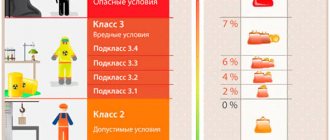SALARY AMOUNT IS A MANDATORY CONDITION OF THE EMPLOYMENT CONTRACT
The terms of remuneration are among the mandatory conditions of the employment contract (paragraph 5, part 2, article 57 of the Labor Code of the Russian Federation). Labor legislation includes the following conditions:
• tariff rate or salary (official salary) of the employee;
• additional payments;
• allowances;
• incentive payments.
According to Part 1 of Art. 135 of the Labor Code of the Russian Federation, wages for a specific employee are established by an employment contract in accordance with the wage systems in force for a given employer. That is, it is of great importance what kind of remuneration system is applied to the employee (for example, time-based or piece-rate), whether additional payments, allowances, bonuses, etc. are established, as well as working conditions.
At the same time, remuneration systems are developed based on the requirements of labor legislation. That is, the wages of each employee must take into account the criteria established in the legislation, including working conditions[1].
As a rule, employers include in an employment contract with an employee a special section dedicated to the terms of remuneration for this employee (for example, “Wages”).
Is indexing necessary?
- General provisions: terms, to whom it applies, on what regulations it is based
- Description of the remuneration system: the remuneration system(s) is established, categories of workers are determined
- The procedure for calculating the fixed part of remuneration (salary, tariff rate) is described.
- Describes the variable part of remuneration (bonuses) or makes reference to the Regulations on bonuses
- Describes allowances and surcharges (mandatory by law and established by the company)
- The payment procedure is established (terms, methods of issuance, etc.)
Art. 134 Labor Code of the Russian Federation, Determination of the Constitutional Court of the Russian Federation dated June 17, 2010 N 913-О-О - Mandatory
Will the court oblige the LNA to provide for indexation?
- No (Appeal ruling dated July 18, 2013 in case No. 11-22647/13, Determination dated September 18, 2013 N 33-4335/2013)
- Yes (Determination of the Leningrad Regional Court dated May 15, 2013 N 33-1971/2013)
What percentage? – Determined by the employer, but taking into account agreements (Appeal ruling dated 09/03/2012 in case No. 33-7513B-09)
What is the frequency? – One year (Appeal ruling in case 33-456/2015 dated 02/26/2015), another period (for example, Decision in case No. 25120/201 dated 09/29/2014)
Can other increases be taken into account? – Yes (Appeal ruling dated July 23, 2014 No. 33-1405, Appeal ruling dated August 28, 2014 in case No. 33-34136)
Is there enough in the employment contract? – No (Appeal ruling dated January 28, 2015 in case No. 33-418/2015(33-8628/2014)).
Example: “The Employer indexes the wages of employees, as a rule, by 3% annually in the 2nd quarter of the current year based on the financial capabilities of the Employer and the approved budget.”
https://youtu.be/eHx5BmW9wZs
TIME-TIME WAGE SYSTEM
If the employee has only a tariff rate or official salary (salary), their specific amount in numerical terms (for example, 100 rubles per hour or 50,000 rubles per month). Such explanations are given by Rostrud[2].
The wording may be as follows:
3.1. For the performance of labor duties provided for in this employment contract, the Employee is set a salary of 50,000 (Fifty thousand) rubles per month.
3.1. For the performance of labor duties provided for in this employment contract, the Employee is set an hourly tariff rate of 100 (One Hundred) rubles per hour.
In this case, the employment contract cannot use the wording “Payment according to the staffing table” or “The employee’s official salary is established in accordance with the staffing table.” If the employer does not indicate a specific salary amount, this will violate the requirements of paragraph 5 of Part 2 of Art. 57 Labor Code of the Russian Federation.
Thus, referring to the staffing table instead of indicating the specific amount of the employee’s salary is a violation of the requirements of labor legislation, for which the employer may be brought to administrative liability under Part 1 of Art. 5.27 of the Code of the Russian Federation on Administrative Offenses (CAO RF).
Therefore, when paying time-based labor, the employment contract must indicate the specific amount of the tariff rate or official salary of the employee, as well as additional payments, allowances and incentive payments.
PIECE WAGE SYSTEM
If, in accordance with the employer’s current remuneration system for the employee, a piece-rate remuneration system is established, the corresponding condition must be included in the employment contract.
At the same time, labor legislation does not oblige the employer to indicate in the employment contract the specific amount of piece rates or labor standards provided for in Art. 160 Labor Code of the Russian Federation.
Therefore, in an employment contract with an employee, whose earnings will depend on the number of units of product produced (work performed), it is necessary to indicate that wages are piecework. You must also provide a link to the employer’s local regulations establishing:
• piece rates, time standards, production standards;
• the procedure for recording production output and the volume of work performed (for example, regulations on remuneration of employees or an order from the employer).
The employee must be familiarized with the specified local regulatory act against signature.
The wording in the employment contract may be as follows:
3.1. The worker is established with a direct piece-rate wage system and is paid for the amount of product he produces. Piece rates, time standards, production standards, as well as the procedure for recording production output and the volume of work performed are established by the Regulations on the remuneration of employees of Specialist LLC.
It is also necessary to take into account that there are several types of piecework wages:
• direct piecework;
• piecework-bonus;
• piecework-progressive;
• indirect piecework.
How are labor conditions stated in the agreement?
The main feature of a fixed-term employment contract is the grounds on which it is concluded. The Labor Code of the Russian Federation establishes a wide list of conditions that allow the drawing up of a contract of this type (details are in our other material), while the legislator does not disclose the specifics regarding remuneration.
If you need to indicate piecework wages in a fixed-term employment contract, you can take any of the options discussed above for contracts without a term limit as a sample. The exceptions are when the employer specifies the total amount to be paid to the employee during the contract period.
Fixed-term employment contracts are close in content to civil law ones, so the level of salary under them often depends on the result of the work performed. The document may also include provisions on the quality of work results, on which the final amount of remuneration depends.
ADDITIONAL PAYMENTS, ALLOWANCES, BONUSES
Norm of paragraph 5, part 2, art. 57 of the Labor Code of the Russian Federation allows you not to indicate in the employment contract the specific amounts of additional payments, allowances and bonuses.
If the employer has established additional payments, allowances and incentive (incentive) payments (including bonuses), then you can indicate their types and amounts:
a) directly in the employment contract;
b) in the form of a reference to the local regulatory act of the employer (for example, regulations on remuneration of employees, regulations on bonuses for employees) or the collective agreement by which they are established. Employees must be familiarized with the specified documents against signature (paragraph 10, part 2, article 22, part 3, article 68 of the Labor Code of the Russian Federation).
The fact that in this case it is possible to use reference norms in an employment contract is confirmed in its explanations by Rostrud2.
Extract from the letter of Rostrud dated March 22, 2012 No. 428-6-1 2. […] The specific amount of the tariff rate or official salary is indicated directly in the employment contract. As for additional payments, allowances and incentive payments due to an employee, they can be directly indicated in the employment contract or it can make a reference to the relevant local regulation or collective agreement, which provides the grounds and conditions for their payment. In the latter case, the employee must be familiarized with the content of local regulations and the collective agreement against signature.
The wording may be as follows:
3.1. For the performance of labor duties provided for in this employment contract, the Employee is paid a salary that includes: 3.1.1. Official salary in the amount of 50,000 (Fifty thousand) rubles per month. 3.1.2. Quarterly and annual bonuses that are accrued and paid to the Employee in the manner and on the terms established by the Regulations on bonus payments to employees of New Technologies LLC.
3.1. For the performance of labor duties provided for in this employment contract, the Employee is paid a salary that includes: 3.1.1. Official salary in the amount of 30,000 (Thirty thousand) rubles per month. 3.1.2. Personal bonus for high qualifications in the amount of 10,000 (Ten thousand) rubles per month.
Please note that in an employment contract with an employee who will work in the Far North or equivalent areas[3], you must indicate the regional coefficient and percentage increase in wages. If the employer violates this rule and does not include such conditions in the employment contract, the employee will still be able to demand their payment. This position is confirmed by judicial practice[4].
Employment contract with an employee of the Far North - standard samples
Employment contract No.
, hereinafter referred to as the Employer, represented by the person acting on the basis of, on the one hand, and
, hereinafter referred to as the Employee, on the other hand,
Subject of the agreement
In accordance with the terms of the Agreement, the Employer undertakes to hire the Employee for a position (hereinafter referred to as the Job) in.
In accordance with the terms of the Agreement, the Employee undertakes to personally perform his job duties in accordance with the Agreement and the Job Description (Appendix No. to the Agreement), which is an integral part of the Agreement, and to comply with the internal labor regulations in force at the Employer.
Work under the Contract is the main place of work and type of employment for the Employee.
Nature of work: (mobile, traveling, on the road, other type of work).
Working conditions at the workplace: .
The agreement comes into force on and is concluded for an indefinite period.
The employee undertakes to begin work.
Upon hiring, the Employee is given a probationary period: .
Comply with labor legislation and other regulations containing labor law norms, local regulations, terms of the collective agreement, agreements and this Agreement.
Provide the Employee with the Work stipulated by the Contract.
Ensure safety and working conditions that comply with state regulatory labor protection requirements.
Provide the Employee with equipment, tools, technical documentation and other means necessary to perform his job duties.
Important
Pay promptly and in full the wages due to the Employee within the terms established by the Agreement, the Labor Code of the Russian Federation, the collective agreement, and internal labor regulations.
Carry out compulsory social insurance of the Employee in the manner prescribed by law.
Compensate for harm caused to the Employee in connection with the performance of his job duties, as well as compensate for moral damage in the manner and under the conditions established by law.
3.9.1.
Personally and conscientiously perform job duties in accordance with the Job Description, which is an integral part of the Agreement.
3.9.2.
Comply with labor discipline and internal labor regulations.
3.9.3.
Comply with occupational health and safety requirements.
3.9.4.
Treat with care the property of the Employer and other employees, including the property of third parties held by the Employer, if the Employer is responsible for the safety of this property.
3.9.5.
Immediately inform the Employer or immediate supervisor about the occurrence of a situation that poses a threat to the life and health of people, the safety of the Employer’s property, including the property of third parties located by the Employer, if the Employer is responsible for the safety of this property.
3.9.6.
Undergo medical examinations.
3.9.7.
Compensate for damage caused to the Employer in accordance with labor legislation and the Contract.
3.10.1.
Monitor the proper compliance by the Employee with the requirements of the law, local regulations of the Employer, the Agreement and other documents.
3.10.2.
Conduct collective negotiations and conclude collective agreements.
3.10.3.
Encourage the Employee for conscientious, effective work.
3.10.4.
Advice
Require the Employee to conscientiously and properly fulfill his obligations under the Contract and to take care of the property of the Employer and other employees, including the property of third parties owned by the Employer, if the Employer is responsible for the safety of this property.
3.10.5.
Require compliance with internal labor regulations.
3.10.6.
Bring the Employee to disciplinary and financial liability in the manner prescribed by law.
3.10.7.
Adopt local regulations.
3.10.8.
Engage the Employee to work outside the working hours established in clause 5 of the Agreement, in the manner prescribed by labor legislation.
3.11.1.
To provide him with the Work stipulated by the Agreement.
3.11.2.
To a workplace that complies with state regulatory requirements for occupational health and safety.
3.11.3.
3.11.4.
To protect personal data.
3.11.5.
For timely and full payment of wages in accordance with clause 6 of the Agreement.
3.11.6.
For the duration of working hours in accordance with the law and the Agreement.
3.11.7.
For professional training, retraining and advanced training.
3.11.8.
For compensation for damage caused to the Employee in connection with the performance of work duties, and compensation for moral damage in the manner prescribed by law.
During the period of validity of the Agreement, the Employee is subject to guarantees and compensations provided for by labor legislation and local regulations.
Damage caused to the Employee by injury or other damage to health associated with the performance of his work duties is subject to compensation in accordance with the law.
When the Employee uses, with the consent or knowledge of the Employer and in his interests, personal property, the Employee is paid compensation for the use, wear and tear (depreciation) of tools, personal vehicles, equipment and other technical means and materials belonging to the Employee, as well as reimbursement of expenses associated with their use.
The employee is assigned working hours: a forty-hour work week with five working days and two days off (Saturday and Sunday). The duration of daily work is set from to hours, lunch break from to hours.
The right to use vacation for the 1 (first) year of work arises for the Employee after 6 (six) months of his continuous work with the Employer. By agreement of the parties, paid leave may be provided to the Employee before the expiration of 6 (six) months.
Leave for the 2nd (second) and subsequent years of work can be provided at any time of the working year in accordance with the order of provision of annual paid leave established by the Employer.
For family reasons and other valid reasons, the Employee, upon his application, may be granted a short-term leave without pay, the duration of which is determined by agreement between the Employee and the Employer.
The employee is set a salary according to the staffing table in the amount of rubles. ().
The Employer undertakes to pay wages directly to the Employee.
The Employer undertakes to pay wages to the Employee at the place where the Employee performs the work.
note
Remuneration is made in cash in the currency of the Russian Federation (in rubles).
The parties bear responsibility in accordance with Russian legislation.
The parties bear disciplinary, material, civil, administrative and criminal liability in the manner prescribed by Russian legislation.
The Party that caused damage to the other Party shall compensate for this damage in accordance with Russian legislation.
The contract may be terminated on the grounds provided for by the Labor Code and other federal laws.
When carrying out measures to reduce the number or staff of an organization's employees, the Employer is obliged to offer the Employee another available job (vacant position) in accordance with Part 3 of Article 81 of the Labor Code of the Russian Federation.
Find out what: Sample statement to the police about theft and deadlines
The Employee has the right to terminate the Agreement by notifying the Employer in writing no later than two weeks in advance.
The specified period begins the next day after the Employer receives the Employee’s resignation letter.
The Employer, with the written consent of the Employee, has the right to terminate the Contract with him before the expiration of the above period, paying him additional compensation in the amount of the Employee’s average earnings, calculated in proportion to the time remaining before the expiration of the notice of dismissal.
The Employer has the right to terminate the Contract before the expiration of the test period if the test result is unsatisfactory, notifying the Employee about this no later than 3 (three) days in advance, indicating the reasons that served as the basis for recognizing the Employee as having failed the test.
The Employer undertakes to pay severance pay in the amount of average monthly earnings, and also to retain the Employee’s average monthly earnings for the period of employment, but not more than 3 (three) months from the date of dismissal (including severance pay) upon termination of the Contract with the Employee due to the liquidation of the organization , reduction in the number or staff of the organization's employees.
The agreement of the Parties or a collective agreement (or other local act) may provide for other cases of payment of severance pay, as well as establish increased amounts of severance pay.
Important
Termination of the Agreement at the initiative of the Employer is not permitted during the period of temporary incapacity for work of the Employee and while he is on annual leave, except in the case of complete liquidation of the Employer.
The day of dismissal of the Employee is the last day of his work.
Other conditions
An agreement on full financial responsibility is concluded with the Employee.
The Agreement is drawn up in 2 (two) original copies in Russian, one for each of the Parties.









